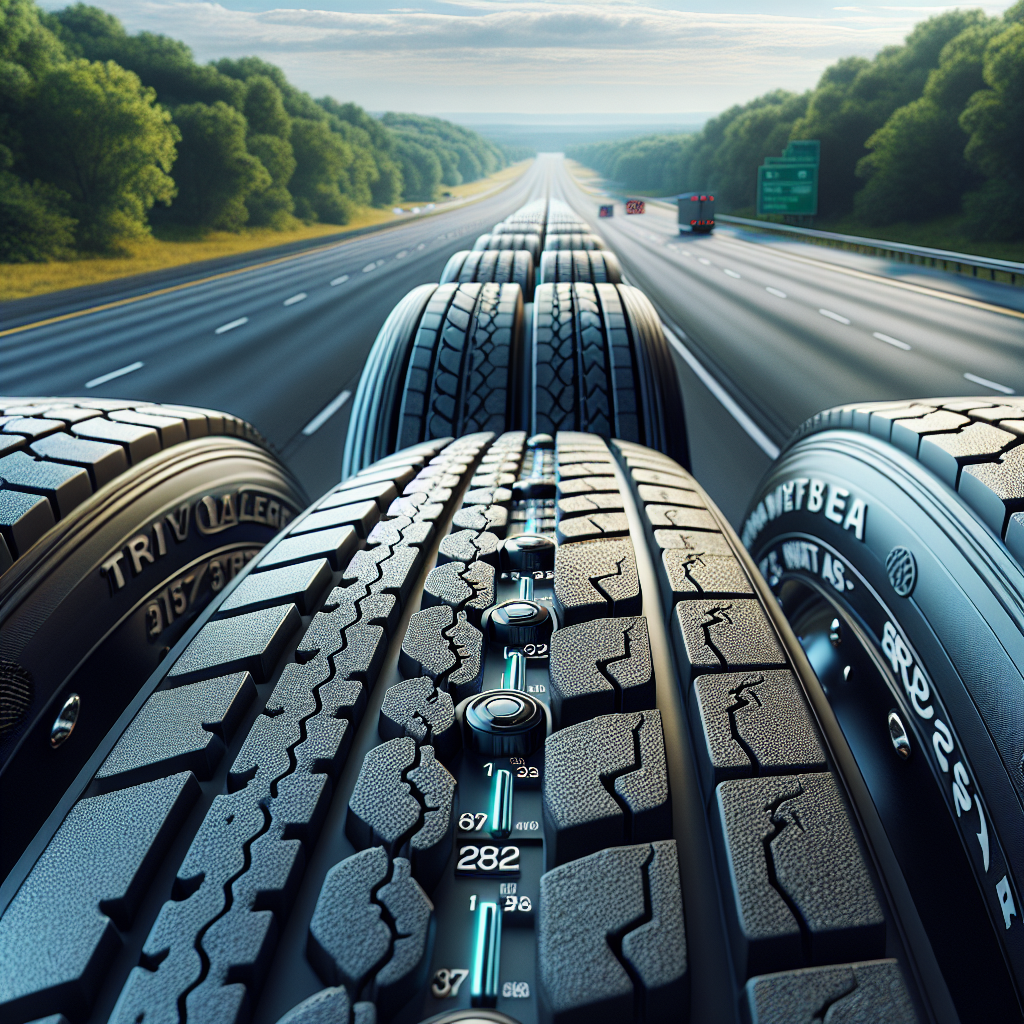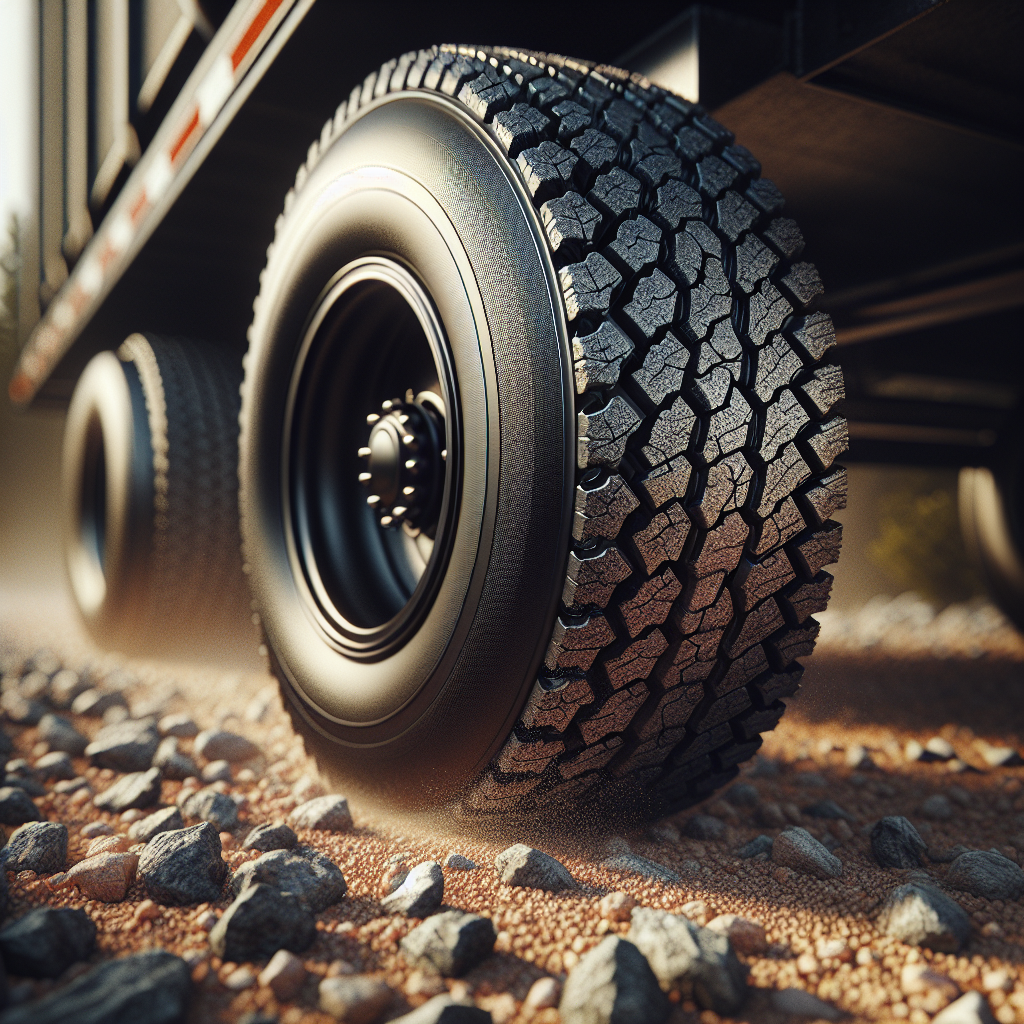When it comes to towing trailers, an important aspect to consider is the temperature of your tires. Understanding trailer tire temperature norms is essential for ensuring safety and preventing potential failures. Typically, tire temperatures can rise due to various factors, including friction, load, and the duration of travel. It is normal for trailer tires to experience elevated temperatures, especially during long hauls; however, excessive heat can indicate underlying issues that need to be addressed.
Several factors contribute to tire temperature:
- Friction: As tires roll, they generate heat due to friction between the tire and the road surface.
- Load Capacity: Overloading your trailer can lead to increased tire pressure and heat.
- Inflation Pressure: Proper tire inflation is crucial; under-inflated tires can heat up faster.
- Speed: Higher speeds typically lead to increased tire temperatures due to prolonged friction.
To maintain a safe towing experience, it's advisable to regularly monitor tire temperatures and consider investing in a trailer monitoring system. Tow with peace of mind, knowing that TrailerWatchdog is standing guard. For more information on how to keep your trailer tires safe and cool, visit trailerwatchdog.com.
Common Causes of Hot Trailer Tires
Understanding the common causes of hot trailer tires is vital for maintaining the longevity and safety of your towing setup. Identifying these causes can help you take proactive measures to prevent overheating and potential tire failure.
Here are some of the most prevalent factors that can lead to increased tire temperatures:
- Under-inflation: Tires that are not properly inflated can flex more while rolling, generating excessive heat. Regularly checking and adjusting tire pressure is crucial.
- Overloading: Exceeding the trailer’s weight capacity places additional stress on the tires, causing them to heat up more than usual.
- Poor Alignment: Misaligned wheels can cause uneven tire wear and increased friction, resulting in higher temperatures.
- Worn Out Tires: Tires that have reached the end of their lifespan may not dissipate heat effectively, leading to overheating.
- High Speeds: Driving at high speeds increases the risk of tire heat buildup due to prolonged friction on the road.
By understanding these common causes, trailer owners can take steps to mitigate risks and ensure a safer towing experience.
Signs of Overheating Trailer Tires

Recognizing the signs of overheating trailer tires is crucial for preventing potential blowouts and ensuring safe towing. Overheating can lead to catastrophic tire failure, which can be dangerous for both the driver and other road users.
Here are some key indicators that your trailer tires may be overheating:
- Excessive Heat: If you can touch the tires and they feel excessively hot, this is a clear sign of overheating. A temperature gauge can help in accurately assessing tire temperature.
- Visual Damage: Look for signs of damage like bulging, cracking, or blistering on the tire surface. These can indicate that the tire is failing due to heat stress.
- Unusual Wear Patterns: Uneven tread wear can signal that your tires are overheating. Check for areas that are worn down more than others.
- Vibrations or Shaking: If you experience unusual vibrations or shaking while towing, it may be a sign that the tires are not functioning properly, potentially due to overheating.
- Frequent Pressure Loss: Tires that frequently lose air pressure may be overheating, as heat can cause air to expand and escape from any small punctures or weak spots.
Being vigilant and aware of these signs can help you take immediate action and avoid severe tire-related issues during your travels.
How to Monitor Trailer Tire Temperature

Monitoring your trailer tire temperature is essential for safe towing and can significantly reduce the risk of overheating. By implementing effective monitoring strategies, you can ensure that your tires remain in optimal condition. Here are some practical methods to keep track of your trailer tire temperatures:
- Infrared Thermometer: This handheld device allows you to quickly measure the surface temperature of your tires without direct contact. Regularly check the temperatures during trips, especially after long stretches of driving.
- Tire Pressure Monitoring Systems (TPMS): Installing a TPMS can provide real-time data on tire pressure and temperature. These systems alert you to any significant changes, allowing you to take immediate action before problems escalate.
- Visual Inspections: Regularly inspect your tires for any signs of heat damage or wear. Look for blisters, cracks, or abnormal tread wear, which can indicate overheating.
- Scheduled Maintenance: Implement a routine maintenance schedule that includes checking tire pressure and temperature before and after long trips. Keeping tires inflated to the manufacturer’s specifications helps manage heat build-up.
- Smart Trailer Technology: Consider upgrading to a smart trailer monitoring system, such as those offered by TrailerWatchdog. These systems provide continuous monitoring of axle temperature and tire data, helping to prevent catastrophic failure events.
By integrating these monitoring techniques into your towing routine, you can ensure that your trailer tires remain safe and functional throughout your journeys.
Preventative Measures for Trailer Tire Safety

Ensuring the safety of your trailer tires goes beyond mere monitoring; it also involves proactive measures to prevent issues before they arise. Implementing these preventative measures will significantly enhance tire longevity and performance:
- Regular Tire Inspections: Conduct thorough inspections of your trailer tires at least once a month or before long trips. Look for signs of wear and tear, such as uneven tread wear, cracks, or bulges.
- Maintain Proper Tire Pressure: Keeping your tires inflated to the correct pressure is critical. Under-inflation can cause excessive heat build-up, while over-inflation can lead to blowouts. Use a reliable tire pressure gauge to check levels regularly.
- Rotate Your Tires: Just like with your vehicle, rotating your trailer tires helps ensure even wear. Depending on usage, consider rotating them every 5,000 to 7,500 miles to extend their lifespan.
- Load Management: Be mindful of your trailer’s load capacity. Overloading can lead to increased heat and pressure on the tires, resulting in premature wear or failure. Always adhere to the manufacturer’s recommended weight limits.
- Invest in Quality Tires: Opt for high-quality tires specifically designed for trailers. These tires are built to withstand the rigors of towing and are less likely to suffer from heat-related issues.
By integrating these preventative measures into your routine, you can significantly reduce the risk of tire-related incidents, ensuring a safer towing experience.
When to Consult a Professional for Trailer Tires

While many tire issues can be managed by following preventative measures, there are specific situations where consulting a professional becomes crucial. Recognizing these signs early can prevent further damage to your trailer and ensure your safety on the road:
- Excessive Heat: If you notice that your trailer tires are consistently hot to the touch, even after short trips, it may indicate an underlying problem that needs professional assessment.
- Frequent Blowouts: Experiencing multiple blowouts in a short period suggests a serious issue with either the tires or the trailer's alignment and load distribution. A professional can help diagnose and remedy the situation.
- Unusual Vibrations: If you feel unusual vibrations or pulling while towing, it could signal misalignment or tire imbalance. A professional can properly align your tires and ensure a smooth towing experience.
- Visible Damage: If you observe any severe visible damage to your tires, such as deep cuts, bulges, or cracks, it's essential to have them inspected and replaced by a qualified technician.
- Age of Tires: Tires have a lifespan, and if your tires are more than six years old, it's wise to consult a professional for an evaluation, regardless of their appearance.
Remember, taking proactive measures and seeking professional help when needed can save you from costly repairs and ensure safer travels. Tow with peace of mind, knowing that trailerwatchdog is standing guard.








